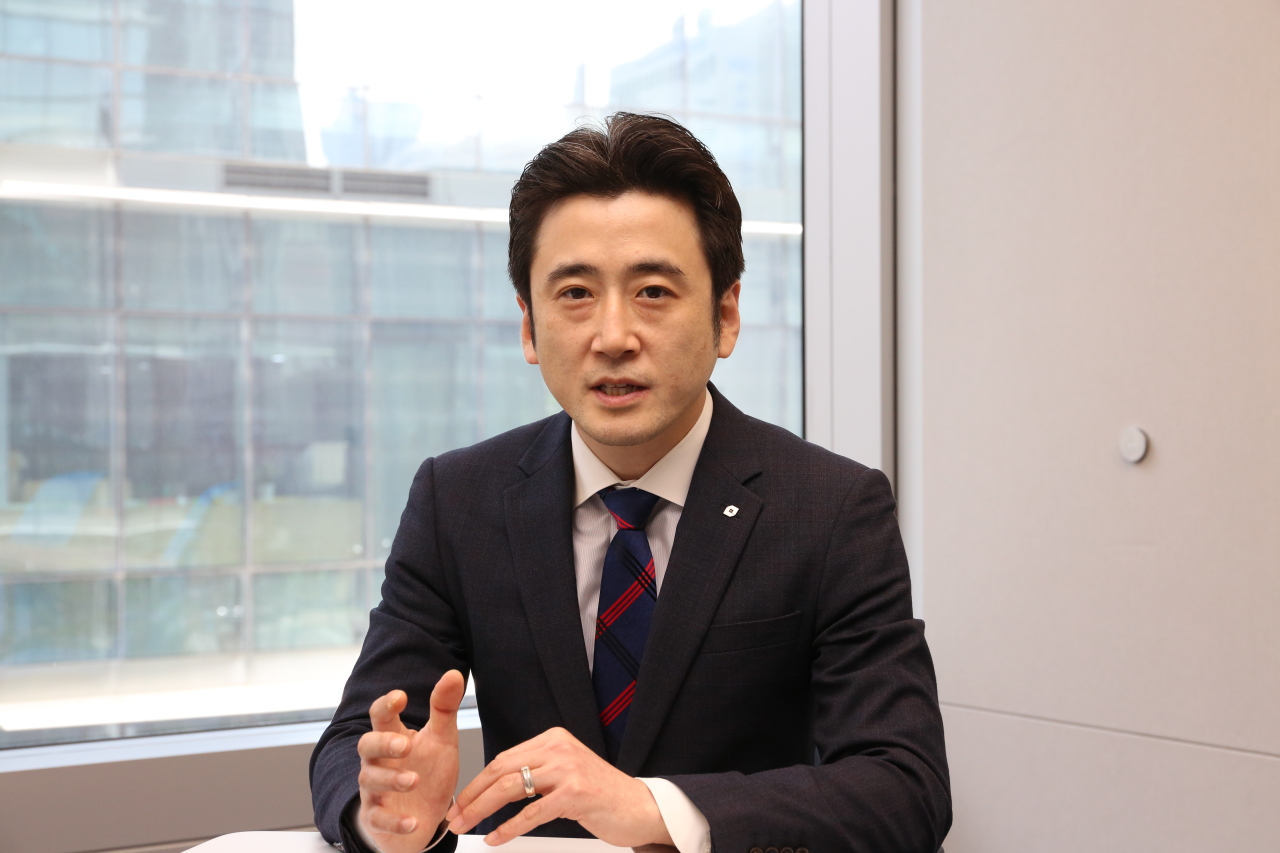[Herald Interview] ‘Foreign investors will flock back to Korea in hopes of an IT boom’
Local market less affected by COVID-19 pandemic fallout
By Jie Ye-eunPublished : April 16, 2020 - 17:52

Amid the new coronavirus fallout which crashed global economies and forced foreign investors to exit emerging markets, South Korea’s stock market was bound to face a blow.
What marks Asia’s fourth-largest economy, however, is the signs of recovery, as foreign investors have begun scooping back local shares, focusing largely on IT sectors, judging that the country has moved past its epidemic peak and is now about to engage in heavy economic stimulus.
“The stock market is rebounding now. Liquidity, fiscal policies and current issues began pulling back indexes,” said Lee Kyoung-min, senior investment strategist at Daishin Securities, in a recent interview with The Korea Herald.
“However, due to the lingering uncertainties in economy and business performance, it is premature to jump to rosy conclusions.”
Since the Korean market is highly dependent on outside factors, it will continue to face challenges in attracting offshore investors for a while. But once the coronavirus is put down, Seoul will be one of the first to see foreign investors’ net buying rise once again, he said.
“In light of the profit increasing rate of major countries in 2020-2021, Korea’s figure stands at the highest level, which means that when ongoing uncertainties disappear, the undervalued market will appear more attractive.”
Lee cited Korea’s forte in information and communications technology, especially in the semiconductor business, which has recently seen a rise in global demand and prices.
Offshore investors dumped nearly 7.14 trillion won ($5.82 billion) worth of market bellwether Samsung Electronics stocks from Feb. 17 to April 6. But they turned net buyers after checking the firm’s first-quarter earnings guidance.
“With the increasing demand in semiconductor around the globe, foreign investors are increasingly bent toward buying IT and hardware related local stocks,” he said.
Another positive factor for Korea’s stock market is that its latest parliamentary election has had relatively little downside impact on stock prices.
While most key elections in the past brought down the local indexes, the benchmark Kospi on Thursday closed nearly flat, slightly losing 0.01 points to 1,857.07, while tech-heavy Kosdaq rose 13.14 points, or 2.15 percent, to close at 623.43.
The expert, however, warned that the country’s trade-dependent economy could face a possible contraction down the road, depending on how the US-China trade war develops.
By Jie Ye-eun (yeeun@heraldcorp.com)








![[Graphic News] More Koreans say they plan long-distance trips this year](http://res.heraldm.com/phpwas/restmb_idxmake.php?idx=644&simg=/content/image/2024/04/17/20240417050828_0.gif&u=)
![[KH Explains] Hyundai's full hybrid edge to pay off amid slow transition to pure EVs](http://res.heraldm.com/phpwas/restmb_idxmake.php?idx=644&simg=/content/image/2024/04/18/20240418050645_0.jpg&u=20240419100350)






![[From the Scene] Monks, Buddhists hail return of remains of Buddhas](http://res.heraldm.com/phpwas/restmb_idxmake.php?idx=652&simg=/content/image/2024/04/19/20240419050617_0.jpg&u=20240419175937)

![[KH Explains] Hyundai's full hybrid edge to pay off amid slow transition to pure EVs](http://res.heraldm.com/phpwas/restmb_idxmake.php?idx=652&simg=/content/image/2024/04/18/20240418050645_0.jpg&u=20240419100350)

![[Today’s K-pop] Illit drops debut single remix](http://res.heraldm.com/phpwas/restmb_idxmake.php?idx=642&simg=/content/image/2024/04/19/20240419050612_0.jpg&u=)